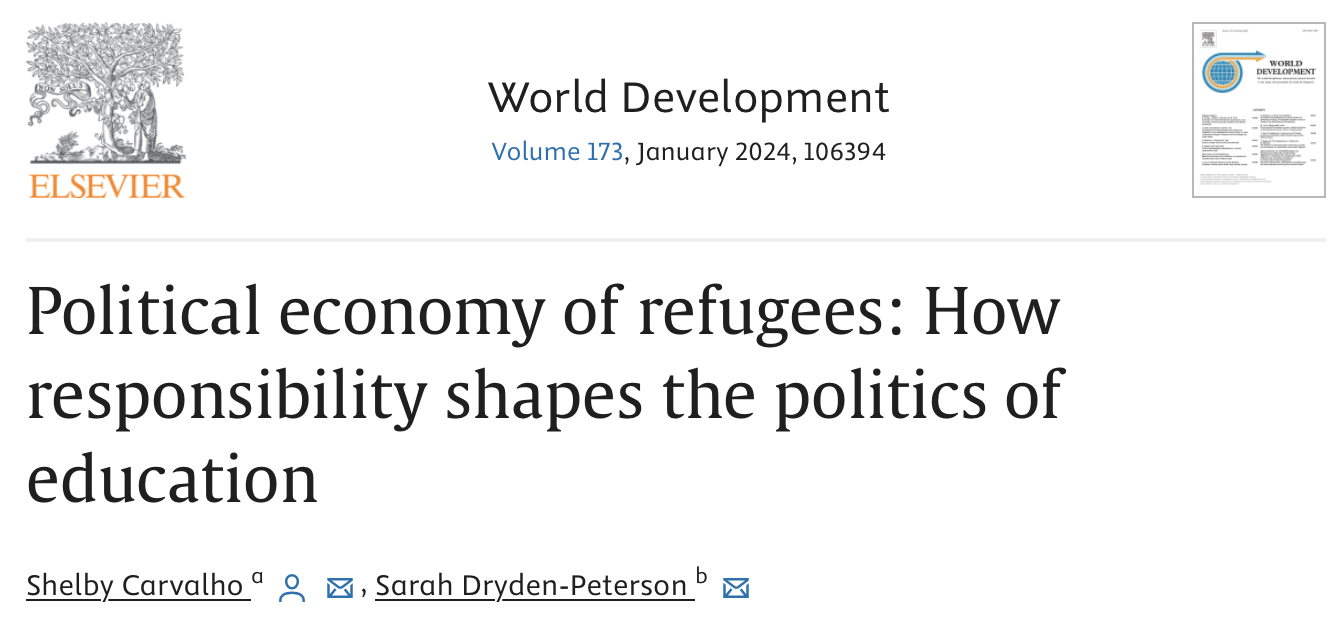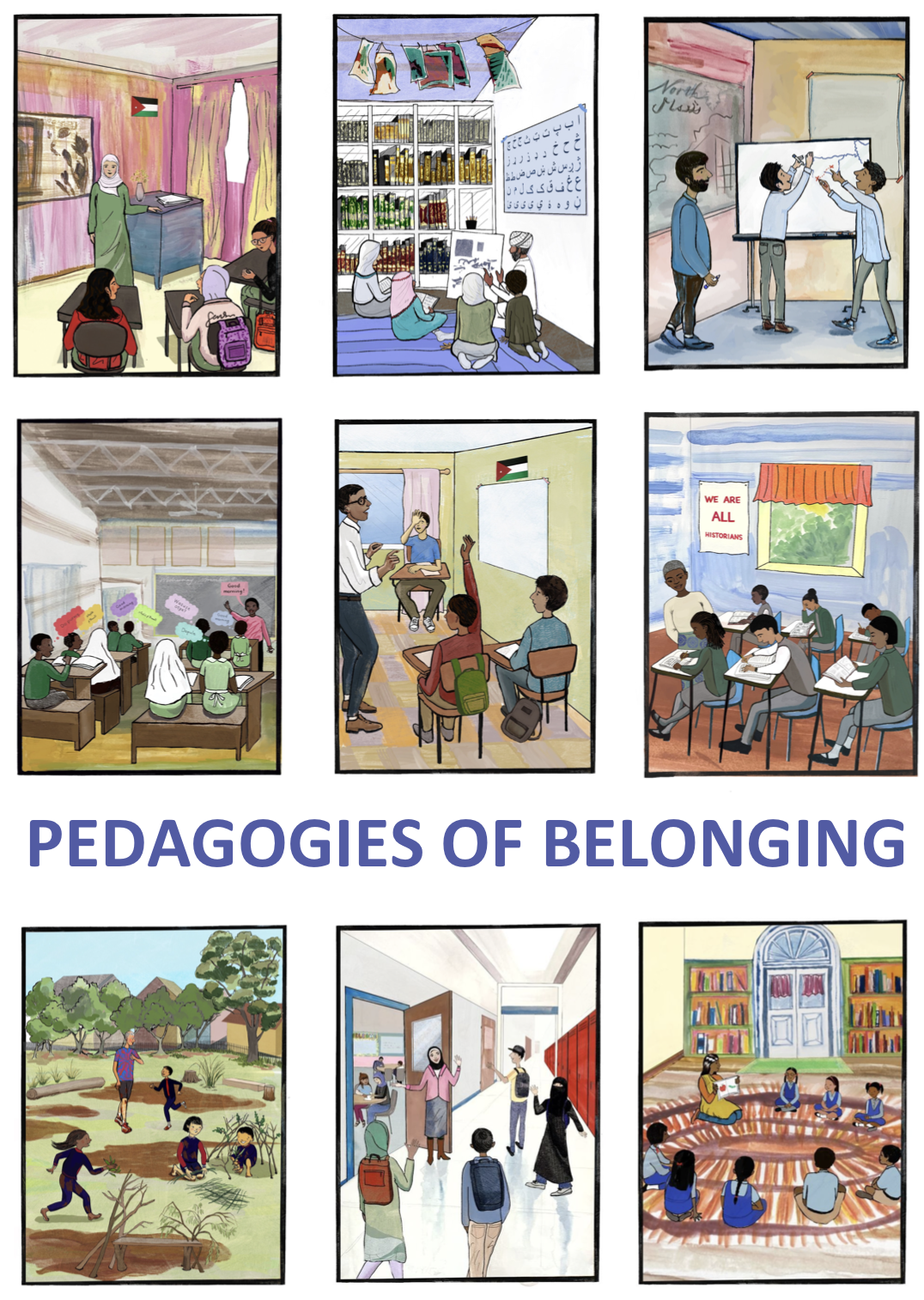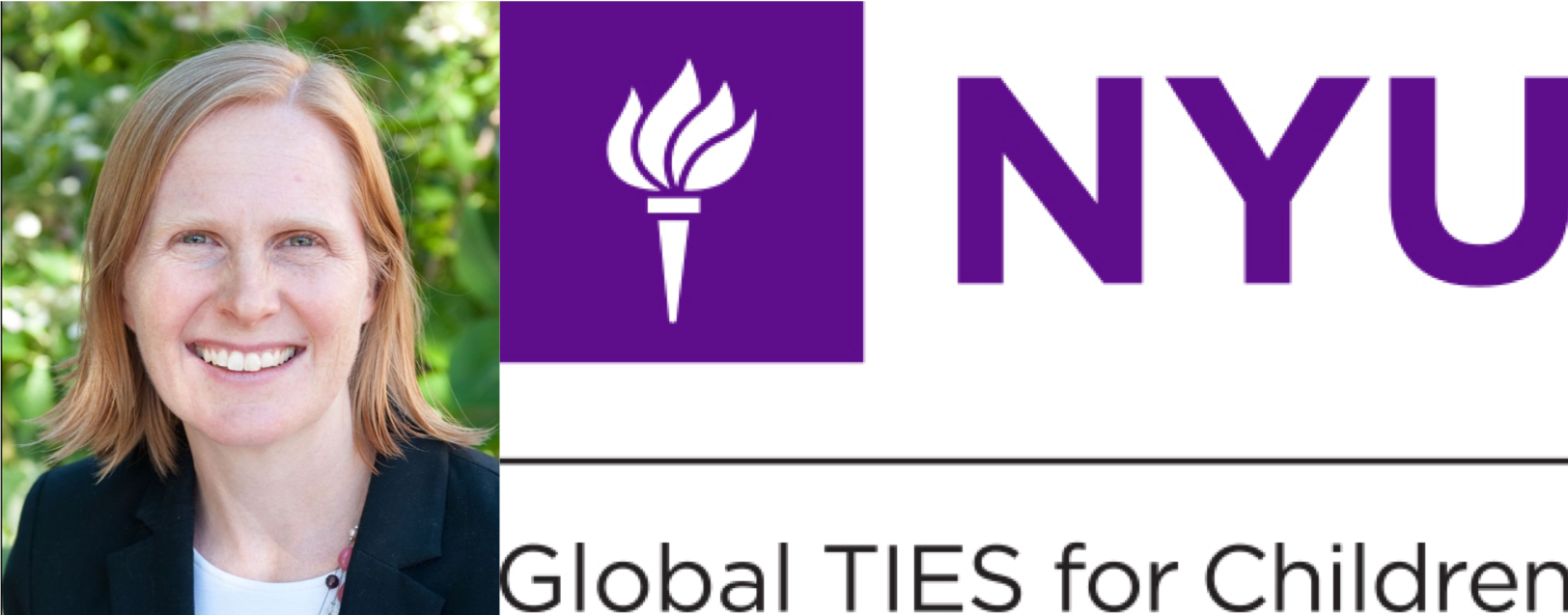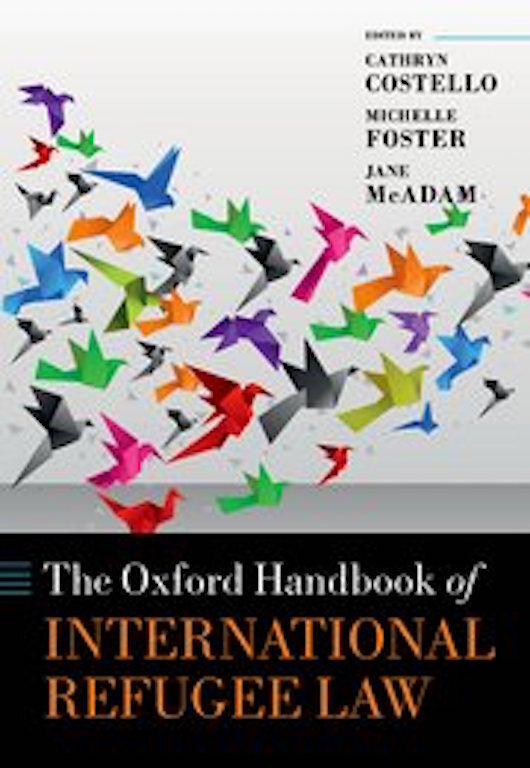Research | The political economy for refugees can be understood as distinct from the political economy for citizens as it requires addressing fundamental questions of responsibility and assumptions about time horizons. This is particularly true in education, which is by nature a long-term engagement and investment and for which responsibility is presumed to lie with governments. As host countries and the global community grapple with decisions about how to provide refugee education, it is critical to understand how the political economy for refugees and for citizens may differ to ensure that approaches are equitable and effective for refugees and host communities.
Read MoreResource | Refugee Stories: Education: Obstacles and Aspirations draws on findings from a doctoral research on young refugees’ educational experiences in England. The study investigated how young refugee people and their families have encountered the education system while considering the implications of living as refugees in England. Young refugee people’s right to education is enshrined in British law; however, the UK has no specific educational policy for them.Invisibilizing practices add to the silence around their experiences and needs. Refugee Stories tells young refugees’ and families’ stories to amplify their voices and shine a light on the social and material conditions they experience.
Read MoreResource | Pedagogies of Belonging: Educators Building Welcoming Communities in Settings of Conflict & Migration is a book is about educators, and for educators, and the practices they have developed to create welcoming communities in settings of migration. Each page of the book is a “microportrait” of one educator who we have come to know by spending time in their classroom and school. We learn from educators how they build welcoming communities, how they create space for dissent, for dialogue, for trust, for new identities, for future-building, and how they envision and build newly imagined communities.
Read MoreSign up for the REACH newsletter to learn about new resources and to join virtual conversations.
Read MoreResource | This new resource is for educators who seek to know about their Afghan students’ experiences to better support them. The resource highlights three central elements that can cultivate trust: Safe classrooms, Community connections, and Quality learning. It ends with suggested questions for educators to facilitate conversations about each of the three elements of trust with students, families, and community leaders.
Read MoreVideo | Refugee REACH director Sarah Dryden-Peterson delivers a lecture titled Refugee Education: Power, Purposes, and Pedagogies Across Contexts, hosted by NYU’s Global TIES for Children.
Read MoreVideo | New animation and research by the Refugee REACH team examines pedagogies of care and belonging in refugee contexts. Research included 8 months of observations in public and private schools in Lebanon and over 100 hours of interviews with Syrian Grade 9 students, their teachers, and families.
Read MoreVideo | New animation and research by the Refugee REACH team examines pedagogies of care and belonging in refugee contexts. Research included 8 months of observations in public and private schools in Lebanon and over 100 hours of interviews with Syrian Grade 9 students, their teachers, and families.
Read MoreInterview | REACH team member Hellen Zziwa spoke with Dr. Marangu Njogu of Windle International about his work, the challenges of providing quality instruction in refugee camp settings, and the importance of supporting young learners throughout their educational journeys.
Read MoreInterview | Elisabeth King and Cyrus Samii spoke with REACH team member Laura Cesaro about their new book and the implications of their findings for policymakers and schools as they seek to create conditions for peace in contexts of conflict and ethnic diversity.
Read MoreArticle | Refugee REACH director Sarah Dryden-Peterson discusses two mobilities that emerge through her team’s work on refugee education: cognitive mobility and temporal mobility. These have broad relevance for what, how, and why children and young people learn, including as related to language in education.
Read MoreResearch | This article examines nation-state policies that have prioritized toleration of diversity over recognition through comparative case studies of three junior secondary schools in Botswana.
Read MoreVideo | Researchers from the Peace Research Institute Oslo and Harvard University teamed up with PositiveNegatives to convey the narratives of refugee students and teachers in the Dadaab refugee camps of Kenya.
Read MoreBook chapter | Refugee REACH director Sarah Dryden-Peterson and affiliate Hania Mariën jointly contributed a book chapter in The Oxford Handbook of International Refugee Law, focusing on the right to education.
Read MoreVideo | ‘Coffee & Chat’ with Refugee REACH director Sarah Dryden-Peterson focusing on refugee education in Europe and North America, hosted by the SIRIUS Policy Network.
Read MoreVideo | REACH co-founder Vidur Chopra of Teachers College presents his research, together with Helen Haste, during a two-part webinar series on UNESCO’s Futures of Education Initiative.
Read More














